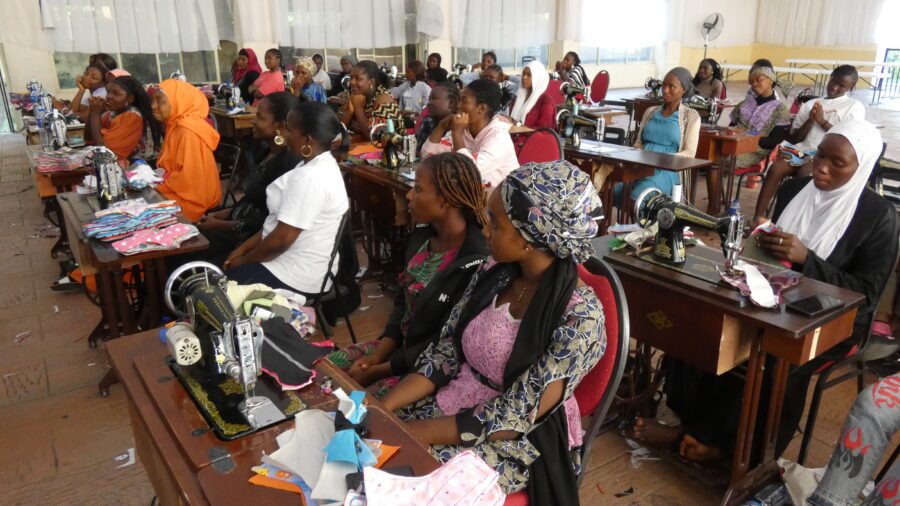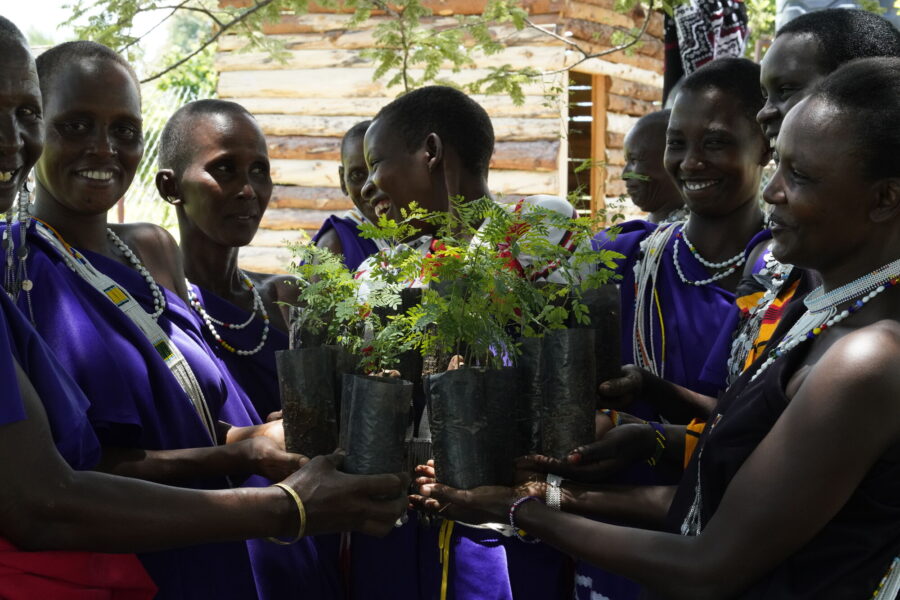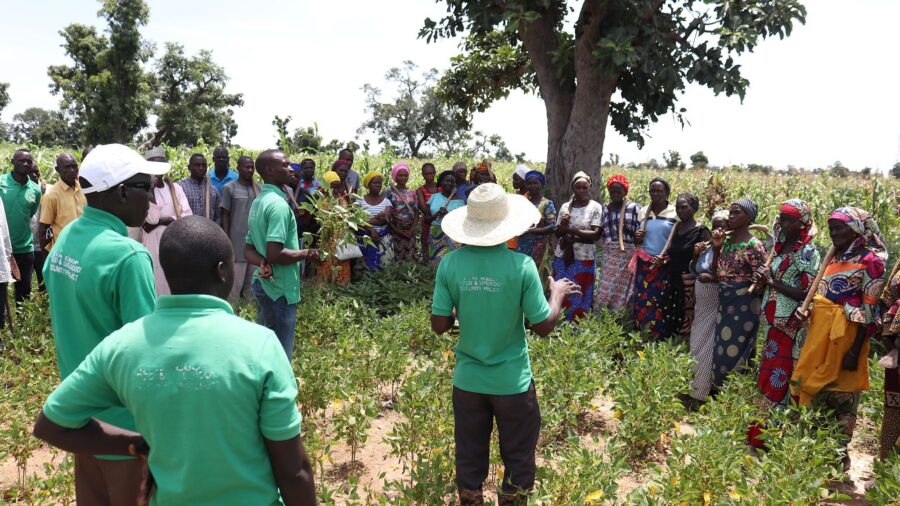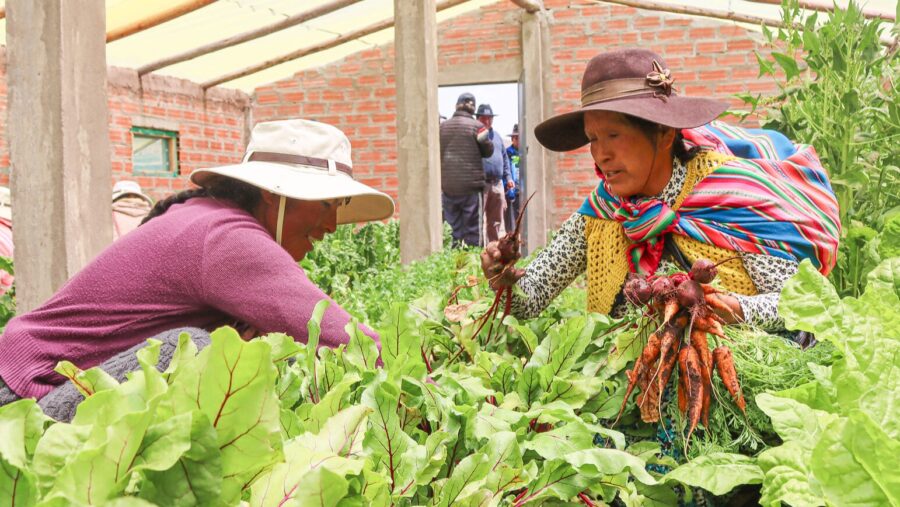Our food sovereignty projects
Empowerment for women and girls: Menstrual hygiene and education
With 224 million inhabitants, Nigeria is the most populous African country and has the largest economy in Africa. However, the country faces a number of challenges. The jihadist organization Boko Haram, which mainly operates in the north-east, has been carrying out attacks on villages, towns and civilians since 2009, destroying houses, churches, schools, stores, wells and fields, destroying crops, abducting [...]
► About the projectProtecting the climate, empowering women: Sustainable Agriculture in Tanzania
Background information In the Usangu Basin in the Mbarali District of Tanzania, deforestation is contributing to desertification in the semi-arid area and threatening the water supply from river water. This in turn has far-reaching effects on the natural ecology and the region's supply of hydropower. The increasingly high population density in the region and the attractiveness of rice and peanuts [...]
► About the projectEducation for sustainable ecological development in Nigeria
Background information Nigeria is rich in natural resources, but not everyone benefits from them. The population in the north-east of the country is particularly disadvantaged, having received little structural support from the state for a long time. The region is also affected by climatic changes such as longer dry seasons and heavier rainfall, environmentally harmful use of natural resources such as [...]
► About the projectFood sovereignty in the Andes
Background information In the strategic area of food sovereignty, we work with numerous indigenous smallholders. The projects are being developed in the greater Cusco area (Peru) and in the catchment area of Lake Titicaca (Bolivia and Peru). In these areas, the population lacks a varied, balanced and healthy diet. However, extreme weather events such as drought and prolonged extreme cold and frost [...]
► About the projectPromoting food sovereignty in South Sudan
Background information The violent clashes that have plagued South Sudan since the end of 2013 are exacerbating the security and supply situation for the population. How can people, especially in rural areas, secure their livelihoods and ensure basic medical care? As a partner organization of Mission 21, the Presbyterian Relief and Development Agency (PRDA) is working closely with the affected [...]
► About the project







